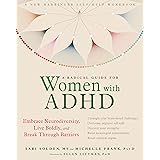
A new study finds that young moms, particularly those under the age of 20, are more likely to have a child with attention-deficit hyperactivity disorder (ADHD).
For the study, researchers from the University of South Australia (UniSA) explored the genetic relationship between female reproductive traits and key psychiatric disorders. They found that the genetic risk of ADHD in children was strongly associated with early maternal age at first birth, especially for women younger than 20.
ADHD is a complex neurodevelopmental disorder which affects a person’s ability to exert age-appropriate self-control. Characterized by persistent patterns of inattentive, impulsive, and sometimes hyperactive behaviors, individuals find it hard to focus, concentrate, and regulate their emotions.
Using genetic data of 220,685 women in the UK Biobank, the research team analyzed genetic correlations between five female reproductive traits:
- age at first birth;
- age at first sexual intercourse;
- age at first menstruation;
- age at menopause;
- number of live births;
and six common psychiatric disorders:
- ADHD;
- autism;
- eating disorders;
- depression;
- bipolar disorder, and;
- schizophrenia.
Associate Professor Hong Lee from UniSA says the findings could help improve reproductive health in women and deliver better outcomes for their children.
“Young mums can have it tough, especially as they’re adjusting to becoming a parent while they’re still young themselves,” said Lee. “By understanding the links between becoming a mother at a young age and having a child with ADHD, we’re able to better educate and support families sooner.”
“The approach is twofold. Firstly, we’re able to inform young women about the high genetic risk of having a child with ADHD if they give birth at a young age. This may caution and prevent them from giving birth at an immature age, which not only improves their reproductive health but also the maternal environment for their baby.
“Secondly, we’re able to educate young mothers about the features of ADHD, such as impulsivity and inattentive behaviours, which may help mothers better recognize the condition in their child and seek treatment sooner than later.
“ADHD is treatable, but early diagnosis and interventions are key to a successful outcome.”
Lee said while the findings are significant, there are some hidden complexities.
“It’s important to understand that while there is a clear genetic link between ADHD and young mothers, this is not necessarily a causal relationship. ADHD is a highly heritable disorder which means that a young mother may also have the genes affecting ADHD risk which is then inherited by her child.
“Knowing a woman has a genetic predisposition for ADHD can be recorded in her family medical history then used to monitor her health and the health of her offspring. In this way, we’re able to ensure both mother and baby receive the support and help they need.”
The new findings are published in Nature’s Scientific Reports.
Source: University of South Australia
* This article was originally published here






